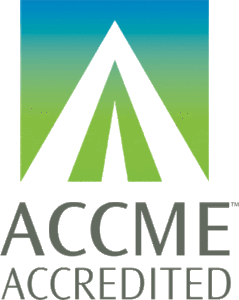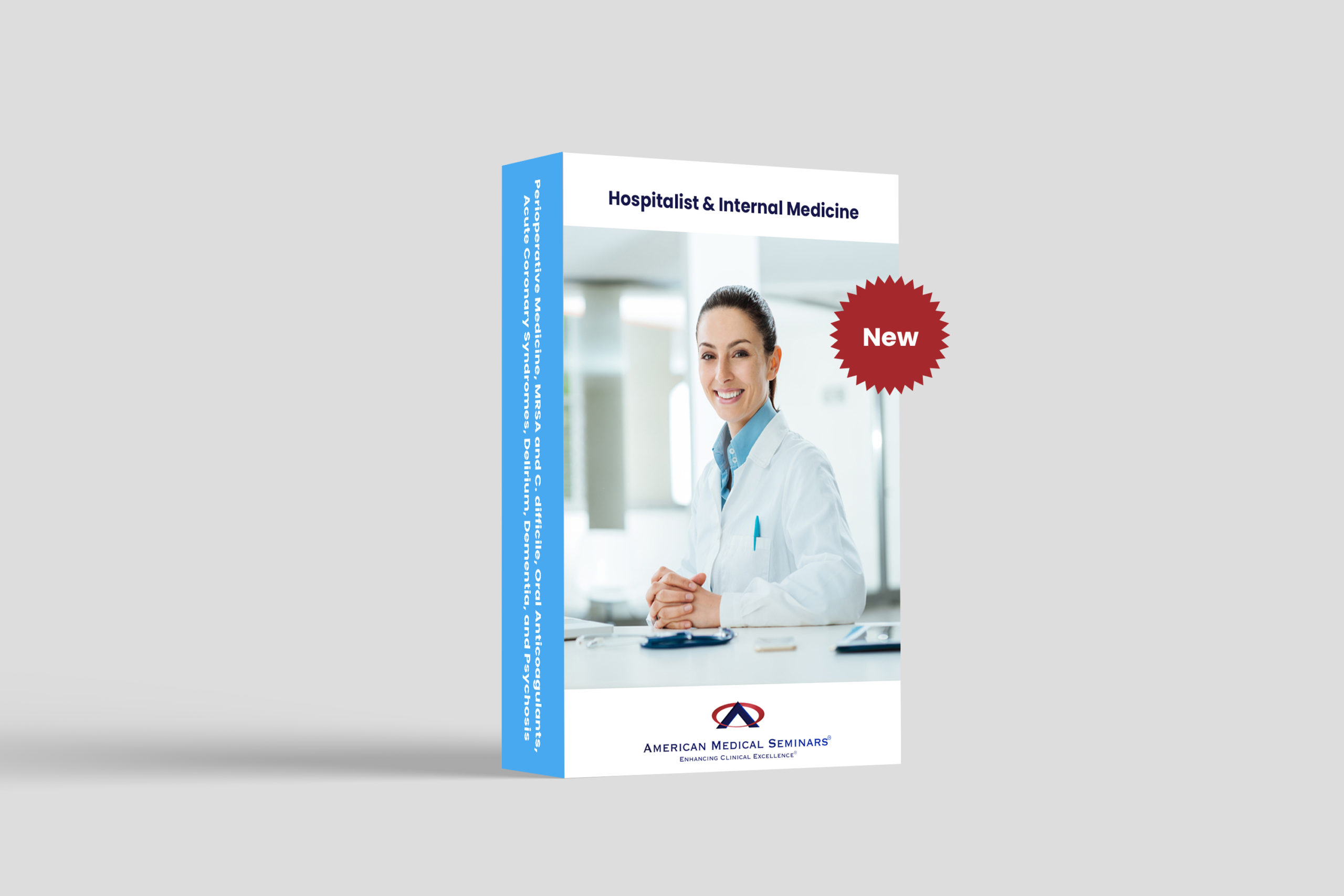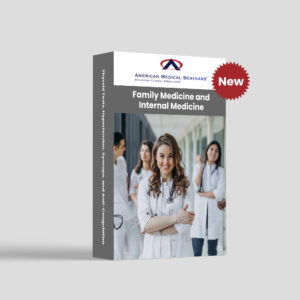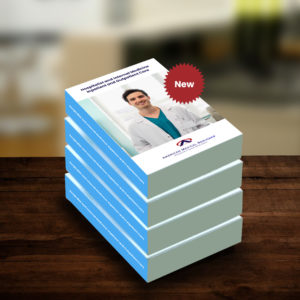Accreditation
AMA
American Medical Seminars, Inc. designates this live activity for a maximum of 5 AMA PRA Category 1 Credits™. Physicians should claim only the credit commensurate with the extent of their participation in the activity.
Accreditation Statement
 American Medical Seminars, Inc. is accredited by the Accreditation Council for Continuing Medical Education (ACCME) to provide continuing medical education for physicians.
American Medical Seminars, Inc. is accredited by the Accreditation Council for Continuing Medical Education (ACCME) to provide continuing medical education for physicians.
Title:Hospitalist & Internal Medicine: Perioperative Medicine, MRSA and C. difficile, Oral Anticoagulants, Acute Coronary Syndromes, Delirium, Dementia, and Psychosis
Course ID: W-20220613-HMIM-3
Faculty: Kendal Williams, M.D., M.P.H. and Vandana Y. Bhide, M.D., F.A.C.P., F.A.A.P., A.B.I.H.M.
Original Release Date: July 1, 2022 Expiration Date: July 1, 2025
Topic 1: Update in Perioperative Medicine (Bhide)
- Appraise pre-operative cardiac risk stratification and management strategies, as per the ACC/AHA Risk Clinical Predictors.
- Determine the role of non-invasive stress testing, echocardiography, coronary angiography and the use of biomarkers to assess peri-operative cardiac risk, as per the ACC/AHA (2014) Perioperative CV Evaluation Guidelines.
- Relate the indications for beta blockers, statins and aspirin in the peri-operative period.
- Evaluate the bleeding risks of commonly prescribed medications and OTC supplements taken pre-operatively.
Topic 2: Challenging Infections: MRSA and C. difficile (Bhide)
- Assess and apply appropriate treatment strategies for different types of methicillin resistant staph aureus infections.
- Employ rational use and relate the precautions of newer antibiotics when treating resistant bacteria.
- Distinguish Guideline based treatment of Clostridium difficile infections.
Topic 3: Direct Oral Anticoagulants (Bhide)
- Differentiate the advantages and disadvantages of commonly used anticoagulants.
- Employ evidence-based anticoagulation bridging regimens.
- Assess the approved indications for various anticoagulation agents.
- Apply the evidence-based indications for anticoagulation in hospitalized patients.
Topic 4: Update on the Management of Acute Coronary Syndromes (Williams)
- Distinguish the forms of ACS and their relative prognoses.
- Based on the most recent AHA/ACC guidelines, apply the appropriate initial management of patients experiencing acute coronary syndromes.
- Based on the most recent AHA/ACC guidelines, categorize the therapeutic options for patients with unstable angina and post-MI.
- Based on the most recent AHA/ACC guidelines, employ the secondary prevention strategies for patients who have experienced an acute coronary syndrome.
Topic 5: Delirium, Dementia, and Psychosis – The Diagnosis and Management of the Inpatient with Mental Status Change (Williams)
- Apply a diagnostic approach to the hospitalized patient with acute mental status change.
- Discuss the differential diagnosis of psychosis in the hospitalized patient.
- Based on a systematic review of the best evidence, formulate an evidence-based management strategy for delirium in the hospital setting.
- Develop an evidence-based screening and treatment protocol for the prevention and management of alcohol withdrawal syndromes.
- The receipt for any incentive-associated purchase will designate the value of the gift card separately from the cost of the learning activity.
- This incentive may have implications on your tax reporting obligations. Any reimbursed amount must be declared as personal income for tax purposes.



